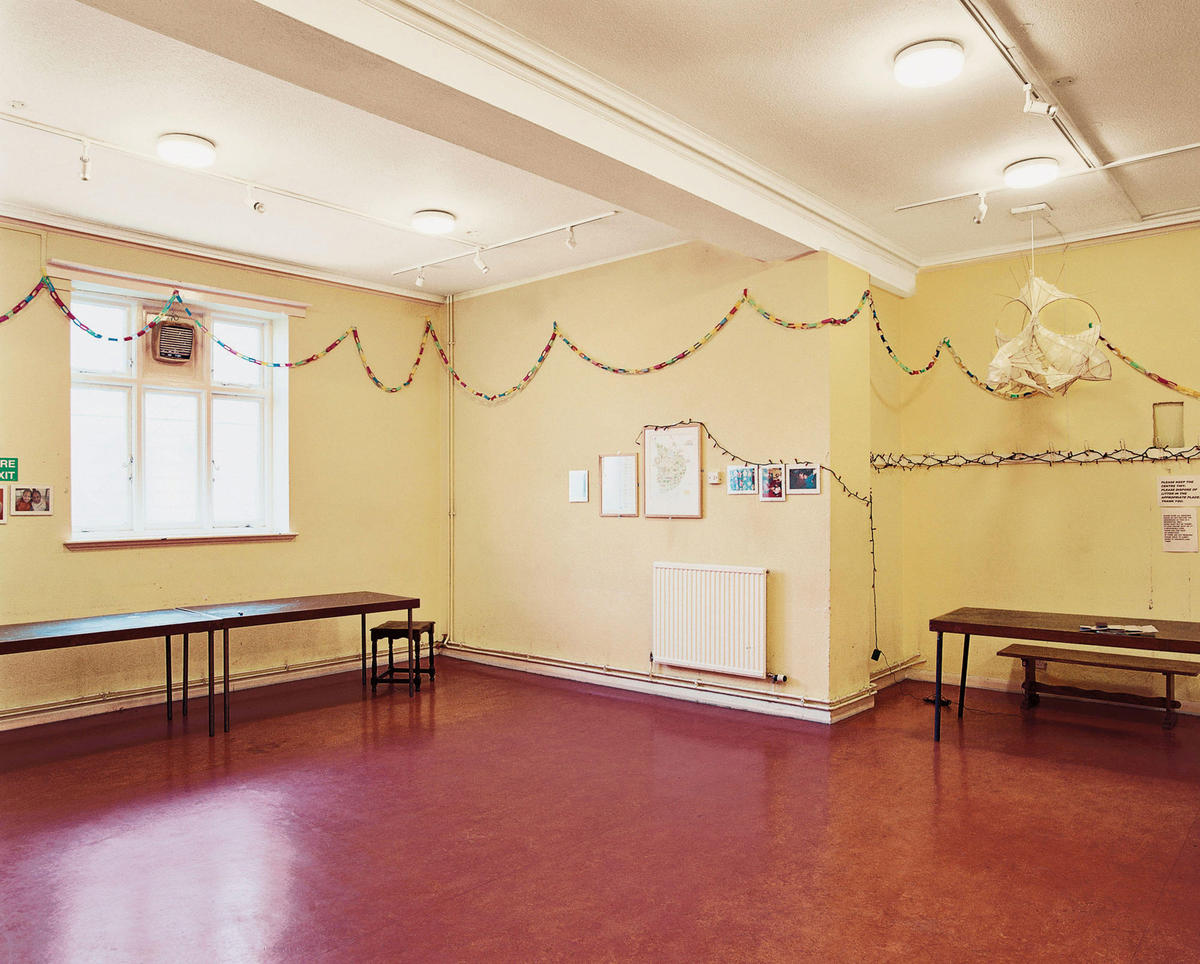
Maurizio Cattelan: Hello, my name is Maurizio. What’s your name?
Roman Ondák: My name is Roman.
MC: Can you spell that, please?
RO: R-O-M-A-N.
MC: How are you?
RO: I’m fine, thanks.
MC: Where do you live?
RO: I live in a small city. And where do you live?
MC: I live in New York. I work in an office.
RO: I work in a hotel, but I do not live in the hotel. I live with my family. My home is near the hotel, so I walk to work every day.
MC: I also walk to work every morning. I don’t work on Saturday afternoon or on Sunday. I have a three-week holiday in the summer.
RO: When I walk to work, I pass a small shop at the end of our road. I buy my newspaper there every day. This is the only shop that is open on Sunday, so it is always very busy. They sell milk, eggs, biscuits, tea, and coffee. You can get aspirin, toothpaste, or a writing pad there. It is a nice little shop.
MC: I live in a small flat near the railway station. I have a sitting room, a bedroom, a bathroom, and a kitchen. The building is old and dirty, but my flat is clean, and the sitting room is very comfortable. I have a lot of books and records and a color television. From my bed, I can hear the trains coming into the station.
RO: I have a cheap plastic camera. On a sunny day I can take good pictures with it. But I can’t take good pictures in bad weather, and I can’t take pictures of moving objects, like a horse or racing car. The pictures I take indoors with a flash aren’t very clear.
MC: My television is near the window. There are a lot of books on the shelves above the television, and there’s a chair between the television and the table. The table is against the wall, under the window. I cook my food in the kitchen and carry it from the kitchen to the sitting room. I eat my dinner at the table.
RO: This evening I am going to the cinema. I sometimes go with my wife, but this evening I am going alone. My wife is nice, but she talks a lot, and when I go to the cinema, I like to watch the film. The film I am going to see is an old one, but it is very good. It is a Hitchcock film.
MC: I think there is too much violence on television and in our society. There are too many war films on television, there is too much crime and too many murders. There was violence in the old cowboy films, of course, but in the old cowboy films there was no confusion between good and bad. The hero was very good, and the villain was very bad. Now there is confusion. The hero is often a criminal. I think the effect on children is very bad.
RO: Everything changes. Once, a lot of people went to the cinema to see silent films. Then when talking pictures started, nobody wanted to see silent films anymore. But people still went to the cinema, and everybody knew the names of all the great film stars. Now we have television. People sit at home night after night watching their favorite programs. But what is going to happen to the cinema?
MC: Well, in my office, I have a grey telephone, and at home I have a black one. They both work very well, and they are very useful. But last week I passed a shop and noticed that the window was full of telephones. There were green telephones, blue telephones, red telephones, big telephones, small telephones, and one elegant gold telephone. “Why?” I thought. “What are they all for? Are there people who have different kinds of telephone in every room?”
RO: People often ask me for my telephone number. But I have not got a telephone, so I tell them to ring me at work. Why do I not have a telephone? I think the telephone is expensive, and I prefer to write letters. There are not many people I want to speak to in the evening, and I do not want to speak to anybody at breakfast time. When I want to use the telephone in the evening, I can always use the box at the end of the road.
This conversation between Roman Ondák and Maurizio Cattelan was coincidentally recorded when they met for the first time at an English course for beginners.